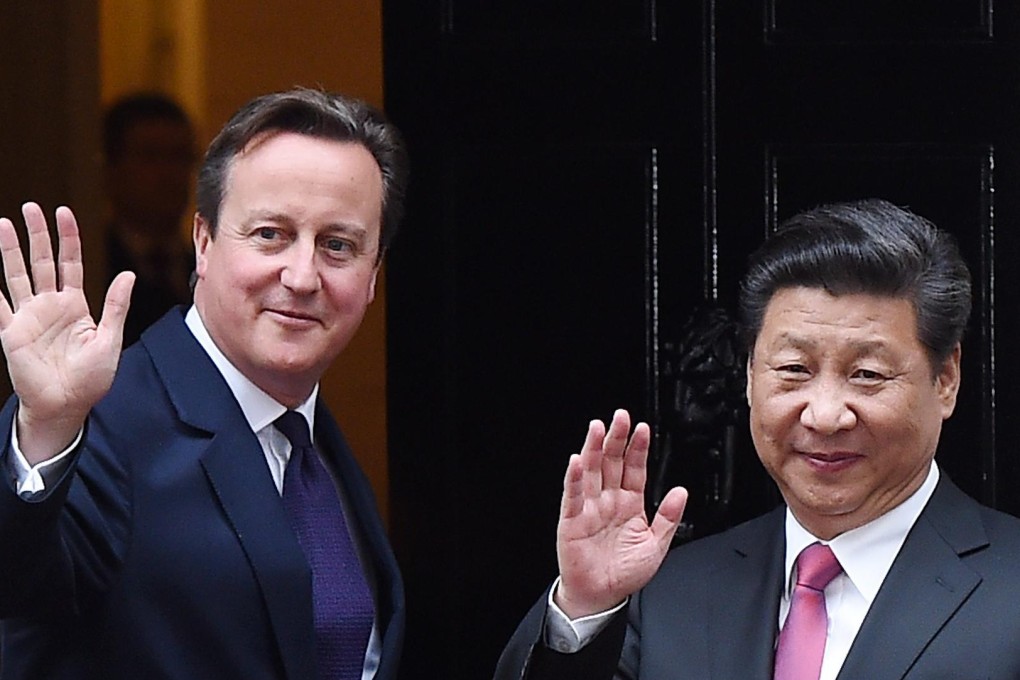Nuclear deal takes China's relationship with Britain to a 'new level', say leaders
Pomp and finance as leaders hail relationship shift and seal agreements on multibillion-dollar Hinkley Point project and cyberespionage

After a day of pomp, President Xi Jinping and his British host sealed a multibillion-dollar deal to finance a British nuclear plant.
Xi met Prime Minister David Cameron for a summit at noon yesterday at 10 Downing Street, where the two discussed bilateral issues – including the loss of British steel jobs to cheap Chinese exports and human rights – “openly and constructively”, Cameron told reporters afterwards.
Cameron said he wanted to make Britain the “partner of choice for China in the West” and that he hoped to take ties to "a new level".
READ MORE: Everything you need to know about Xi's UK visit
“I totally reject the idea that you either have conservation of human rights and steel or you have a strong relationship with China. I want both and we are delivering both,” said Cameron, adding that the nuclear power plant project would use British steel.
Xi said in response he wanted to build a global strategic partnership with London. “I’m making this state visit to the UK to build on past achievements... and take China-UK ties to a new level,” he said.
The president added that China also faced problems with excess steel capacity and blamed the global financial crisis. “China has taken a series of steps to reduce capacity,” he said.